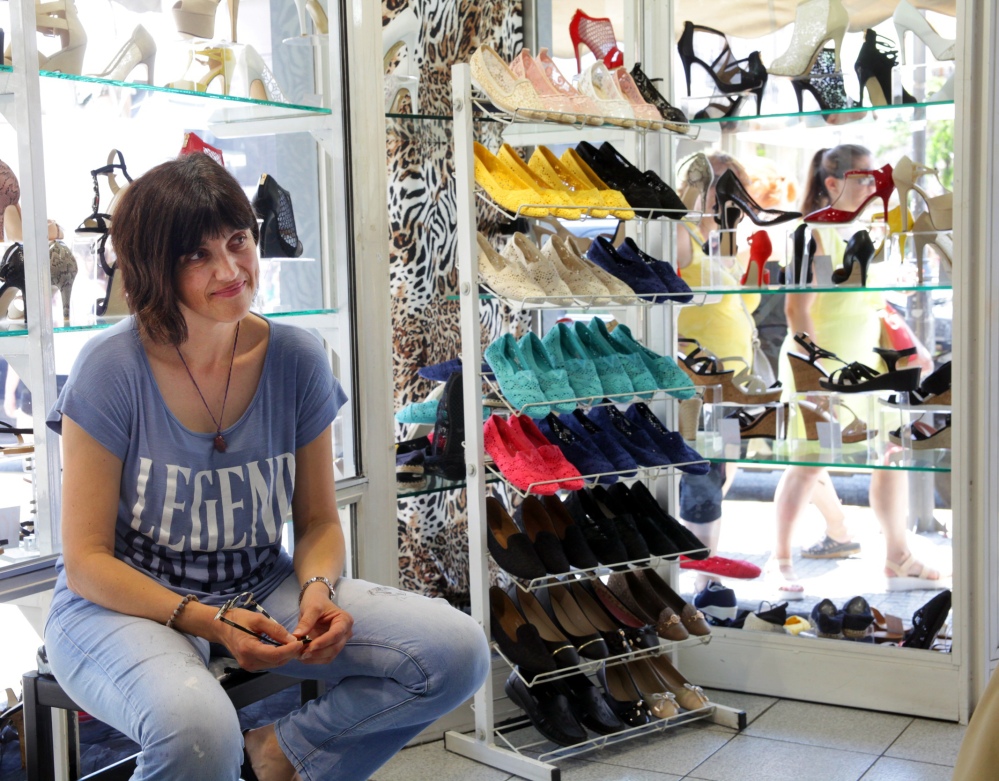ATHENS — Greek voters’ decisive rejection of Europe’s plan to bail out their country cast them closer than ever to doomsday scenarios: A collapse of the banks. An exit from the euro zone. A return to the drachma.
But it is a price that 42-year-old Georgia Imsiritou said she is ready to pay.
“That’s the only logical thing to do,” said Imsiritou, who was among the 61 percent of Greeks who voted Sunday against accepting the austerity measures that European officials have demanded in return for releasing more aid to the debt-ridden country. “We all have to sacrifice something.”
The toll has already been great. Greek banks have been shut down since negotiations over the country’s bailout package collapsed a week ago. Several news reports said they will remain closed until at least Thursday, and it was unclear when – or even if – banks would ever reopen. Long lines formed at ATMs across the city to withdraw the about $67 maximum instituted to help forestall a run on the banks.
The European Central Bank has been providing emergency funding for Greece’s financial institutions, but that money is quickly running out. The ECB’s governing council debated Monday whether to grant a request from Athens to increase its financial lifeline. Without the cash infusion, banks could reportedly run out of money this week.
But for many Greeks, the pain of the past week is just the capstone in a broader economic crisis that has spanned the past five years. A quarter of the work force is unemployed. Pension payments have been slashed. Gross domestic product has tumbled more than 25 percent since 2010.
Neither side in the fight for Greece’s future knows what will come next. With the economy at a virtual standstill on Monday, roadways in downtown Athens typically heavy with traffic were sparsely traveled. Instead, workers poured into parks and cafes – talking lots, buying little. And as the ramifications of Sunday’s vote begin to unfold, many said they have little left to lose.
“I’m not worried because I don’t have any money,” Imsiritou said as she stood in line at an ATM with her 10-year-old under the blazing Athens sun on Monday.
At a drug store in the heart of the city, pharmacist Mary-ann Vamvaka said she will no longer fill large prescriptions. Instead, she doles out smaller quantities to ensure the store does not run out. Some hospitals are postponing elective surgeries, and many businesses now operate day by day.
Germany’s vice chancellor, Sigmar Gabriel, said Monday that the European Union should be ready to provide humanitarian aid to Greece to ensure supplies of medicine and other essential goods.
“The people there need help, and we shouldn’t deny it to them just because we’re not satisfied with the outcome of the referendum,” Gabriel told reporters.
Send questions/comments to the editors.



Success. Please wait for the page to reload. If the page does not reload within 5 seconds, please refresh the page.
Enter your email and password to access comments.
Hi, to comment on stories you must . This profile is in addition to your subscription and website login.
Already have a commenting profile? .
Invalid username/password.
Please check your email to confirm and complete your registration.
Only subscribers are eligible to post comments. Please subscribe or login first for digital access. Here’s why.
Use the form below to reset your password. When you've submitted your account email, we will send an email with a reset code.